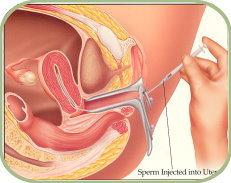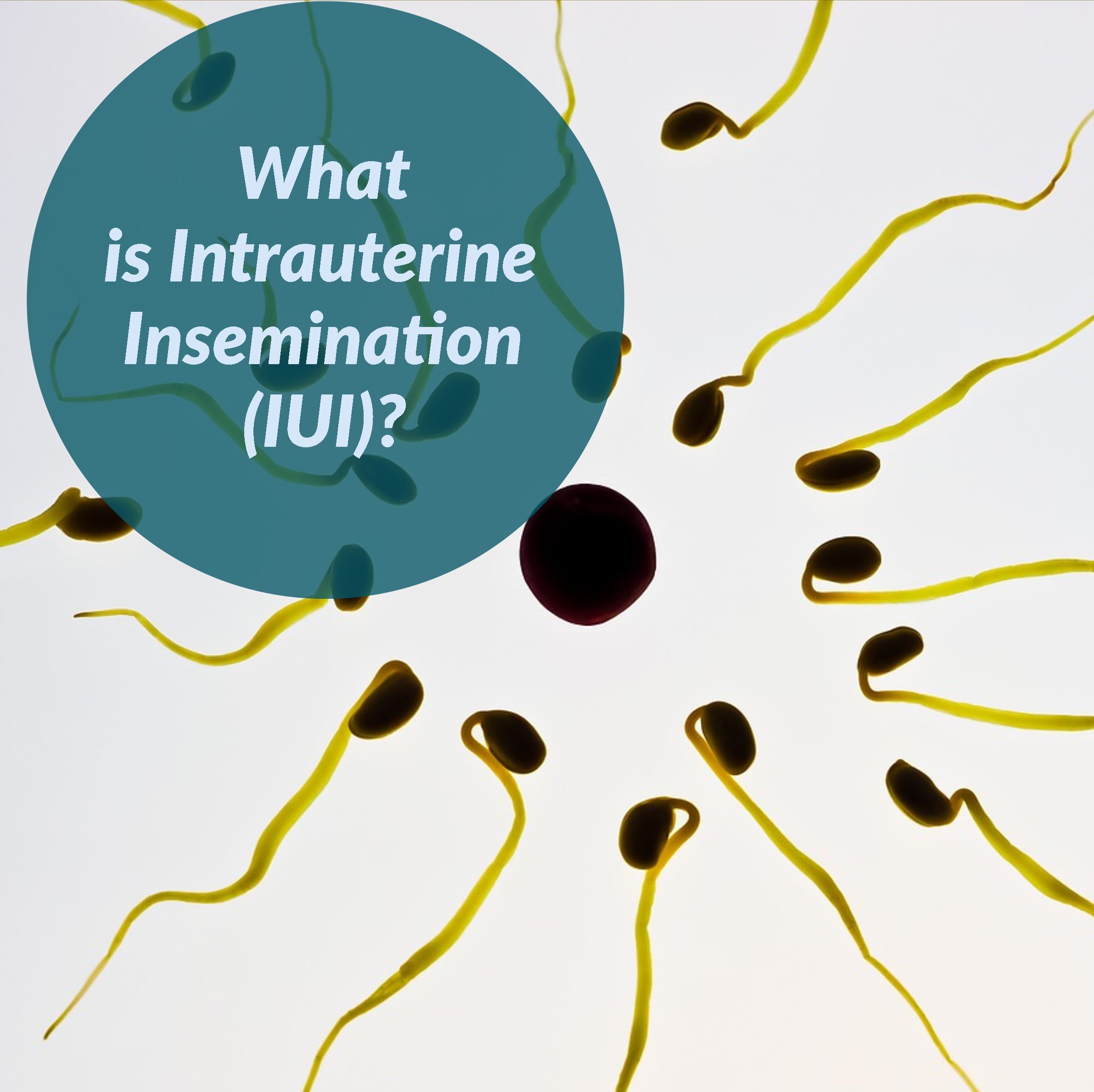
Intrauterine insemination (IUI) is a simple in-office procedure, which involves placing “washed” sperm inside the uterus to facilitate fertilization. With IUI, we bypass the vagina (which is acidic and where most sperm are destroyed) and the cervical mucus (which can impede sperm progression).
By depositing the sperm directly in the uterus, we increase the likelihood that a maximum number of healthy sperm will swim into the fallopian tubes and fertilize a waiting egg, resulting in a normal pregnancy.
Intrauterine insemination (IUI) was initially reported in 1962 (Cohen M.R.). It has since been widely used, often as a first step in fertility treatment. IUI is often combined with ovarian stimulation using clomiphene citrate or fertility injections (gonadotropins).
When Would a Fertility Doctor Use IUI?
There are a wide variety of diagnoses where IUI is indicated:
- Unexplained infertility. Approximately 20% of couples will fall in this category after completing the initial work up (semen analysis, tubal patency and blood hormone tests). When this happens, the initial treatment can be IUI usually with ovarian stimulation. The success rates will depend on the woman’s age and response to medications. IUI without ovarian stimulation does not increase pregnancy rates when compared to intercourse.
- Mild male factor. If your partner’s semen analysis is showing a slight decrease in the sperm count, weak movement (motility) of sperm, or abnormalities in the size or shape of the sperm (morphology), IUI can help. When the sperm is processed (“washed”) we separate the highly motile, normal sperm from the low quality sperm. In patients with severe male factor (more than one semen parameter abnormal, total motile sperm count < 10 million) the best treatment option usually is in vitro fertilization (IVF) with intracytoplasmic sperm injection (ICSI).
- Cervical factor infertility. In patients with “thick” cervical mucus, IUI is recommended. Currently, many fertility specialists question the existence of “cervical factor” infertility. The post-coital test (where we look for motile sperm in the cervical mucus a few hours after intercourse around the time of ovulation) has no predictive value for pregnancy. I have not done one for more than 20 years! In patients on clomiphene citrate (an oral fertility drug which is an anti-estrogen) the cervical mucus gets thick in 15 – 40% of cycles. IUI does improve pregnancy rates in these patients when compared to intercourse.
- Immunological factors. Some women are allergic to proteins in their partner's semen. When there is ejaculation into the vagina there is redness, burning and swelling where the semen has contacted the skin. A condom can prevent these symptoms, but it also prevents pregnancy. In these patients, IUI may be effective as many of these proteins are removed with the sperm preparation.
- Minimal and mild endometriosis. IUI when combined with fertility drugs, is effective in these patients. Patients with severe endometriosis require surgery and/or IVF especially when the tubes are involved.
- Donor sperm. For people who need to use donor sperm to get pregnant, IUI can be used to achieve pregnancy. Frozen donor sperm samples can be obtained from sperm banks thawed before the IUI procedure.
When Would a Doctor NOT Use IUI?
IUI is contraindicated in:
- When there is infection in the lining of the uterus (endometritis).
- Patients with cervical infections (cervicitis), or when the cervix is tightly closed (cervical atresia or stenosis).
- When both tubes are blocked or absent.
- Severe male factor. The minimum number of motile sperm required for IUI to be effective is 5 – 10 million.
- Absent menses (amenorrhea). Patients who do not get periods generally are not ovulating. In these patients, IUI is ineffective.




